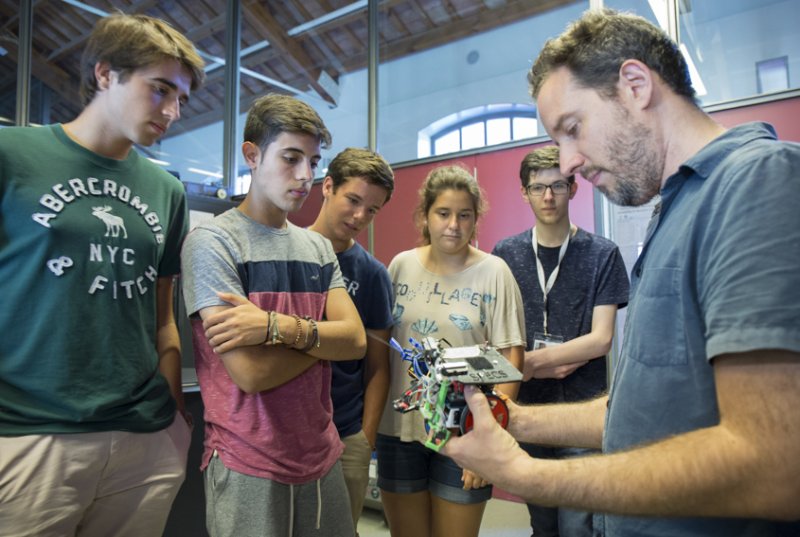Heeeey there! I am using WhatsApp (no, just joking). We’re Jonathan, Aleix, Juan, Manel and Laia and we’re glad to be part of the first edition of BIYSC. In this course, we’ve been participating in the project "Neurorobotics as a tool to understand the brain". The project has been developed in SPECS, The Synthetic Perceptive, Emotive and Cognitive Systems group: a multidisciplinary group founded in 2005 by ICREA Research Professor Paul Verschure (University Pompeu Fabra).
During this two weeks we’ve been learning how to program basic features to a robot and we’ve had introduced our selves to the neurorobotics field. We were provided with computers, robots and arduino platforms for each one. Fortunately our teachers had prepared a full set of gadgets that we could add to the robots: infrared and light sensors, servo-motor gripps, Pixy camera and so on.
Our teachers, Marti Sánchez and Alex Serrano, have taught us how to use different programming codes. It has been a real challenge for us as almost no one had idea of how it worked at the beginning. No seriously, it was like learning Chinese. As soon as the week started we payed attention to the indications Marti and Alex gave us. It is true that we learn by making mistakes as we made all the possible ones but eventually we got to control the codes fluently. We have managed to control the robot by bluetooth, programming it in order to avoid obstacles, tackle several objectives with random exploration in limited containers, follow circuits and paths using colour-sensing, etc. Before testing them physically we programmed computer simulators in which we proved the behavior we expected to occur and that helped to predict some results.
Our brain is really complex to understand. We could compare it to the largest and toughest of the programs, with layers and layers of neurons overlapped which receive and send information at an incredible speed. Having programed simple commands on a robot like go forward or backward seemed difficult for us at first so now we understand how complex can be the neural networking set in our brains.
Some people think that we will never be able to understand the brain, we just say:
TRY EVERYTHING POSSIBLE TO ACHIEVE THE IMPOSSIBLE
For instance, other groups could begin by being as good researchers as we are...

